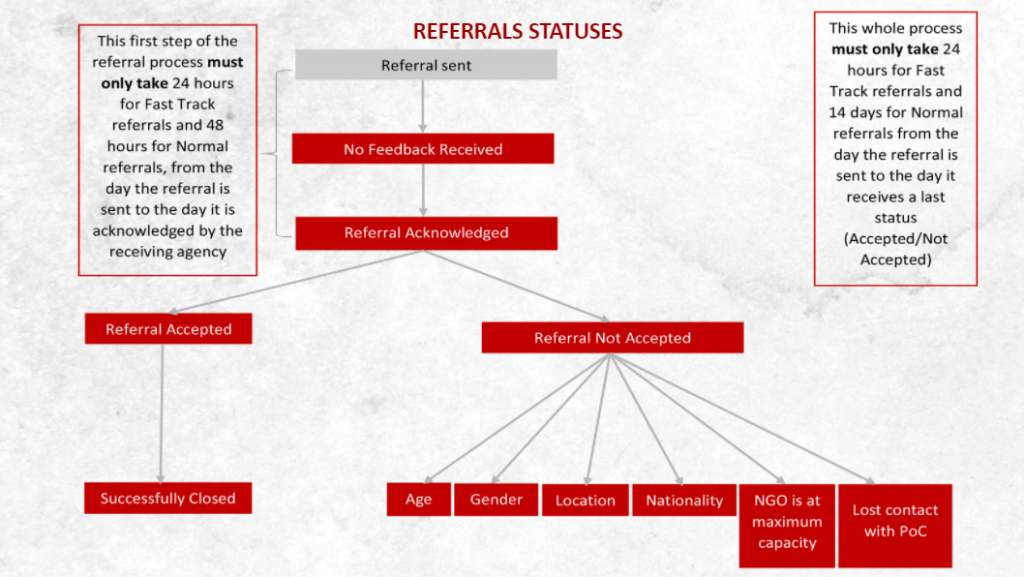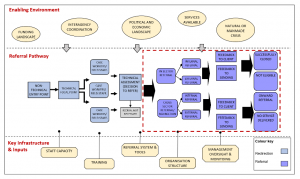
Identify.Refer.Provide
Improving access to services through efficient and accountable referral pathways

Improving access to services through efficient and accountable referral pathways
Referral data provide valuable evidence about the level and strength of coordination between sectors/actors within a humanitarian response, and subsequent access to multi-sector services. Analysis of referral data support the identification of evidence-based solutions to address systematic gaps and bottlenecks, and subsequently improve cross-sector service provision.
The referral process has clear steps and timeframes, as set by the Inter-Agency Minimum Standards for Referrals:

Based on this process and standards for referrals, the RIMS Team developed four indicators to analyse the effectiveness and accountability of referrals:
| The speed of referrals refers to the time that it takes for the receiving agency or internal focal point to acknowledge receipt of the referral. It is measured by the number of days from when the referral was sent, to when it was received by the receiving agency or internal focal point. Referrals considered on time are referrals responded to within 24 hours for fast track referrals and 48 hours for normal referrals as per Referrals Minimum Standards. |
| The timeliness of referrals refers to the total time that it takes to complete the referral process. It is measured by the number of days from when the referral was sent, to when it received a final status (Accepted/Successfully Closed, Not Eligible, No Service Delivered). Referrals considered on time are referrals receiving a last status within 24 hours for Fast Track referrals and 14 days for Normal referrals. |
| The accuracy of referrals refers to the volume of Not Eligible referrals. It is measured by the percentage of referrals with a Not Eligible final status. |
| The level of response to referrals refers to the level of response and follow up of the receiving agency on the referrals they receive. Response is measured by the percentage of ‘’No Feedback Received’’ referrals, compared to ‘’Received’’, and ‘’Not Eligible’’/’’No Service Delivered’’/” Accepted/Successfully Closed’’ referrals. |
To better understand gaps in the effectiveness and accountability of referral pathways, it is necessary to identify the contextual elements and the factors internal to an organisation, which influence the capacity and quality to efficiently manage referrals. The RIMS analytical framework provides insight into the key variables that affect the referral process:

Through identification and analysis of the core components within the broader referral system(s) within Lebanon, poor referral practices and obstacles to effective referral facilitation can be isolated and analysed to identify where exactly effectiveness can be improved.
RIMS analysis seek not only to address gaps in referral pathways, and inform programmatic adaptations and coordination mechanisms, but to also bring greater accountability at a response level and for the referral management for individual organisations.